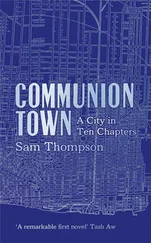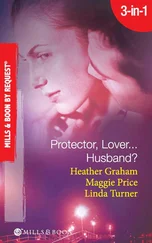Frank Tallis - Deadly Communion
Здесь есть возможность читать онлайн «Frank Tallis - Deadly Communion» весь текст электронной книги совершенно бесплатно (целиком полную версию без сокращений). В некоторых случаях можно слушать аудио, скачать через торрент в формате fb2 и присутствует краткое содержание. Жанр: Исторический детектив, на английском языке. Описание произведения, (предисловие) а так же отзывы посетителей доступны на портале библиотеки ЛибКат.
- Название:Deadly Communion
- Автор:
- Жанр:
- Год:неизвестен
- ISBN:нет данных
- Рейтинг книги:3 / 5. Голосов: 1
-
Избранное:Добавить в избранное
- Отзывы:
-
Ваша оценка:
- 60
- 1
- 2
- 3
- 4
- 5
Deadly Communion: краткое содержание, описание и аннотация
Предлагаем к чтению аннотацию, описание, краткое содержание или предисловие (зависит от того, что написал сам автор книги «Deadly Communion»). Если вы не нашли необходимую информацию о книге — напишите в комментариях, мы постараемся отыскать её.
Deadly Communion — читать онлайн бесплатно полную книгу (весь текст) целиком
Ниже представлен текст книги, разбитый по страницам. Система сохранения места последней прочитанной страницы, позволяет с удобством читать онлайн бесплатно книгу «Deadly Communion», без необходимости каждый раз заново искать на чём Вы остановились. Поставьте закладку, и сможете в любой момент перейти на страницу, на которой закончили чтение.
Интервал:
Закладка:
‘Excuse me a moment,’ said Rheinhardt to his wife.
‘Where are you going?’
‘I want to be closer to Mitzi.’
‘She’s perfectly safe. She won’t fall.’
‘Even so …’
Rheinhardt crossed the play area.
‘Be careful, Mitzi,’ he said as he passed the climbing frame. His daughter smiled.
‘I won’t slip.’
‘Yes. Well. Make sure you don’t.’
He continued walking towards the man, whose face showed a flicker of apprehension as the inspector approached.
‘Good afternoon,’ said Rheinhardt.
The man mumbled a return courtesy.
Rheinhardt sat down next to him and scanned the enclosure. Else was talking to Therese, but unfortunately Rheinhardt had not fooled her. She had detected something odd in his manner and was stealing glances at him through the wooden cage of the climbing frame.
‘Sir?’ said Rheinhardt.
The man turned.
Rheinhardt grabbed the man’s necktie and twisted it tightly. The man’s eyes bulged and he began to make choking noises.
‘I know what you are,’ said Rheinhardt steadily. ‘And I know what you are doing.’ The man’s tongue protruded between his teeth and his face became contorted. ‘You will leave at once and never come back. Do you understand? Never. If I catch you here again, I give you my word, you will regret it.’
Rheinhardt released the man’s tie. He coughed and loosened the knot, then got up and ran towards the gate, looking back anxiously over his shoulder. Rheinhardt sauntered back to Else and Therese.
‘What happened?’ asked Else, her eyebrows raised.
‘I noticed that gentleman’s tie was crooked,’ Rheinhardt pointed towards the flapping coat-tails receding beyond the fence, ‘and performed the small service of straightening it for him.’
‘What gentleman?’ asked Therese.
‘That one over there.’ Therese peered through the trees. ‘He had to leave in a hurry — he had a train to catch.’
Else’s expression was troubled.
As she started to speak, Rheinhardt touched her lips with an outstretched finger, tacitly banning further inquiry.
‘Now, is anyone hungry?’ he asked. ‘I think we should find a bakery.’ He brought his hands together to make a funnel and used it to amplify his voice: ‘Mitzi! Would you like a strudel?’
26
Amelia Lydgate sat in one of Landsteiners laboratories in the Institute of Pathology and Anatomy. Having rehydrated the crystals that she had scraped from Bathild Babel’s fingernails, she had mixed the resulting solution with samples of known blood types. The subsequent patterns of agglutination that she observed down the barrel of her microscope informed her that the man whom Bathild Babel had scratched before she died was a member of the group that Landsteiner had designated type-C.
As she leaned forward, Amelia felt her corset pinch. It reminded her of an article she had read in her Ladies’ Journal about the ‘new’ fashion. The author had advocated abandoning the standard two-piece and corset in favour of a loose gown affording complete freedom of movement. Now that more women were entering occupations that had previously been the exclusive province of men, the limitations of traditional clothing were becoming increasingly apparent. Straining over her microscope, Amelia couldn’t have agreed more. The wisdom of such reasoning was dramatised every time the stiff canvas that encased her body resisted her inclination and issued its creaky protests. The article had concluded with news of a fashion house on Bauernmarkt. Loose-fitting ‘reform dresses’ — as they were described — were made on the premises using fabric designs created by artists of the Vienna Secession. The prices, however, were quite prohibitive.
Amelia ignored her complaining corsetry, examined the slides one last time, and composed a note which she intended to send before attending her pathology class at the university.
Dear Inspector Rheinhardt,
I have completed the requisite procedures for the determination of blood type and can report that the sample I removed from beneath Fraulein Babel’s fingernails is classified as C. No assumptions can be made concerning the origin of the sample, but I consider it reasonable to suggest that the dried blood was connected with the performance of an action made in self-defence. I sincerely hope that this new piece of information will serve some useful purpose as your investigation proceeds. The occurrence of two identical murders must surely suggest that this fiend — for I cannot think of a more apposite term — will act on his unnatural impulses again. The nature of his degeneracy, which demonstrates such low regard for my sex, arouses a very particular disgust. If I possess such skills as might in any way help to ensure this foul creature’s apprehension, then please do not hesitate to request my further involvement. Indeed, I would be honoured to continue my association with the security office. I trust you will inform Professor Mathias of my findings in due course.
Yours sincerely,
Miss Amelia Lydgate
27
From earliest times men have known her. In the Sumerian and Babylonian myths she is called Ereshkigal. In Ancient Rome she was known as Naenia or Libitina, and was said to fall upon the living like a great bird of prey. The Etruscans called her Tulchulcha. To the Hindus she is Kali, the Black Mother. In Japan, she comes as the Snow Queen, who chills the dying with her cold breath and removes all suffering. In Norse mythology she is Hela and in Finnish folktales she is Kalma. The Poles call her the Bone Lady and the Celts call her the Morrigan.
I will not try to describe her. No purpose is served by attempting the impossible; however, I will make an observation that has not, to my knowledge, been recorded by others. When she appears she is enfolded by a dancing, purplish light. Her dark wings, which rise from her shoulders and curve forward, are bathed in an aurora of amethyst.
What is it like to be in the presence of such perfection?
I will tell you.
It is unbearable torment.
Her terrible beauty creates such yearning, such longing, that the soul immediately struggles to escape from its prison. In the throes of a strange ecstasy, it twists and turns within the heavy flesh — striving, desperately, to be free.
I reached out to her, lifted my wasted arms, and begged her to take me. But it was not my time. She began to fade, leaving only an afterglow. It was as if some alien sun had set, leaving in its wake a flush of colour on the low-lying clouds of the night sky, a vestigial trace of heliotrope — gentian violet.
Perhaps I cried out, because my father came into the room. I can remember his hand on my forehead, his hatchet face. He asked me what was the matter, but I could not reply. I closed my eyes against the candlelight, which seemed intolerably harsh and bright. I wanted to see her again: I wanted to follow her ghostly train into perpetual darkness.
The world was never the same thereafter. It seemed counterfeit — a hollow sham. When I recovered from my illness it was like waking up from a long sleep, in a foreign land. Everything had become flat — a crudely painted backdrop in a cheap theatre. Only things relating to Her were meaningful. The graveyard next to the church; the mummies of ancient Egypt; myths and legends of the underworld.
I remember little of that time. No, that is not quite true. What I mean to say is that I remember little of what was happening around me. My inner life I can remember very well. I reflected on my experiences. She had made herself known to me as I stood by the open caskets of Netti and Gerda. Then she had revealed herself to me — when I was close to death.
Читать дальшеИнтервал:
Закладка:
Похожие книги на «Deadly Communion»
Представляем Вашему вниманию похожие книги на «Deadly Communion» списком для выбора. Мы отобрали схожую по названию и смыслу литературу в надежде предоставить читателям больше вариантов отыскать новые, интересные, ещё непрочитанные произведения.
Обсуждение, отзывы о книге «Deadly Communion» и просто собственные мнения читателей. Оставьте ваши комментарии, напишите, что Вы думаете о произведении, его смысле или главных героях. Укажите что конкретно понравилось, а что нет, и почему Вы так считаете.












